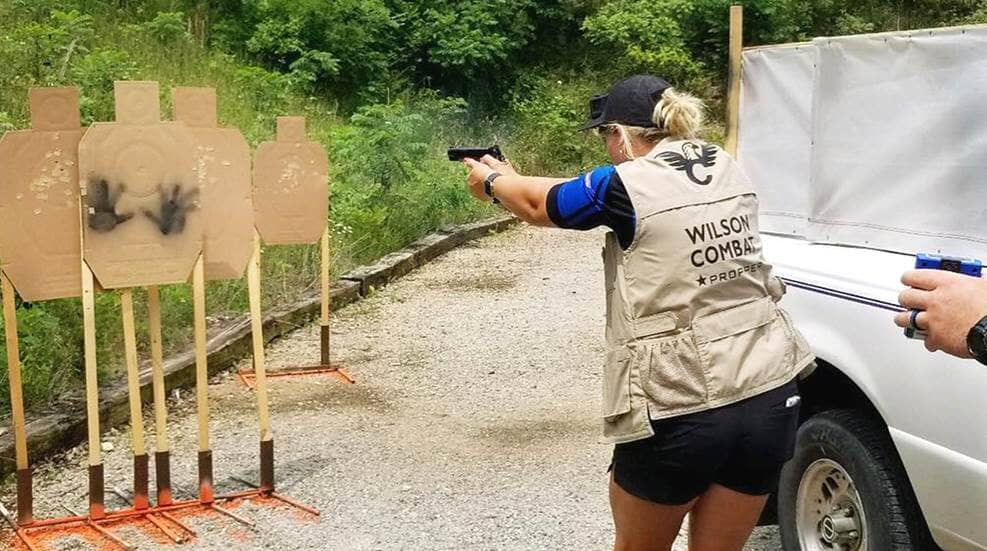The International Defensive Pistol Association (IDPA)
The IDPA is a shooting sport that simulates self-defense scenarios and real-world encounters. It was developed to test the skills of shooters using practical equipment including full-charge service ammunition.
IDPA classification is a system used to group shooters based on their skill level and performance in IDPA matches. The purpose of classification is to provide a fair and competitive environment for shooters of all skill levels.
Visit the IDPA website here for the specific rules
There are six classifications in IDPA, ranging from Novice to Grand Master. Shooters are assigned a classification based on their scores in IDPA matches. To move up to the next classification, a shooter must achieve a certain number of points in their current classification. Points are awarded based on a shooter's performance in IDPA matches, with higher points being awarded for better performance.
Classification in IDPA is intended to be a measure of a shooter's relative skill level, and is not intended to be a measure of absolute skill or ability. It is important to note that classification is not a ranking system, and does not necessarily reflect the overall skill of a shooter compared to all other shooters in the IDPA. Rather, it is a system designed to provide a fair and competitive environment for shooters of all skill levels to compete against one another.
Need quality Tactical Gear? Visit 2nd Amen here
Here is a brief overview of the six classifications in IDPA:
-
Novice: This is the starting classification for all new IDPA shooters. Novice shooters are expected to have limited experience with defensive pistol shooting and are not expected to have a high level of skill.
-
Marksman: Marksman is the second classification in IDPA. To move up to this classification, a shooter must earn a certain number of points as a Novice. Marksman shooters are expected to have a basic understanding of defensive pistol shooting and to be able to safely and accurately operate their firearm.
-
Sharpshooter: Sharpshooter is the third classification in IDPA. To move up to this classification, a shooter must earn a certain number of points as a Marksman. Sharpshooter shooters are expected to have a more advanced understanding of defensive pistol shooting and to be able to safely and accurately operate their firearm under a variety of shooting conditions.
Need to guarantee getting on target? Charter Tactical's 2nd Amen Tube-style red dot is just what you need. See it here.
-
Expert: Expert is the fourth classification in IDPA. To move up to this classification, a shooter must earn a certain number of points as a Sharpshooter. Expert shooters are expected to have a high level of skill and proficiency with their firearm and to be able to safely and accurately operate their firearm under a wide range of shooting conditions.
-
Master: Master is the fifth classification in IDPA. To move up to this classification, a shooter must earn a certain number of points as an Expert. Master shooters are expected to have a very high level of skill and proficiency with their firearm and to be able to safely and accurately operate their firearm under a wide range of shooting conditions.
-
Grand Master: Grand Master is the highest classification in IDPA. To move up to this classification, a shooter must earn a certain number of points as a Master. Grand Master shooters are expected to have an exceptional level of skill and proficiency with their firearm and to be able to safely and accurately operate their firearm under a wide range of shooting conditions.
It is important to note that classification in IDPA is intended to be a measure of a shooter's relative skill level, and is not intended to be a measure of absolute skill or ability. It is also important to note that classification is not a ranking system, and does not necessarily reflect the overall skill of a shooter compared to all other shooters in the IDPA.



